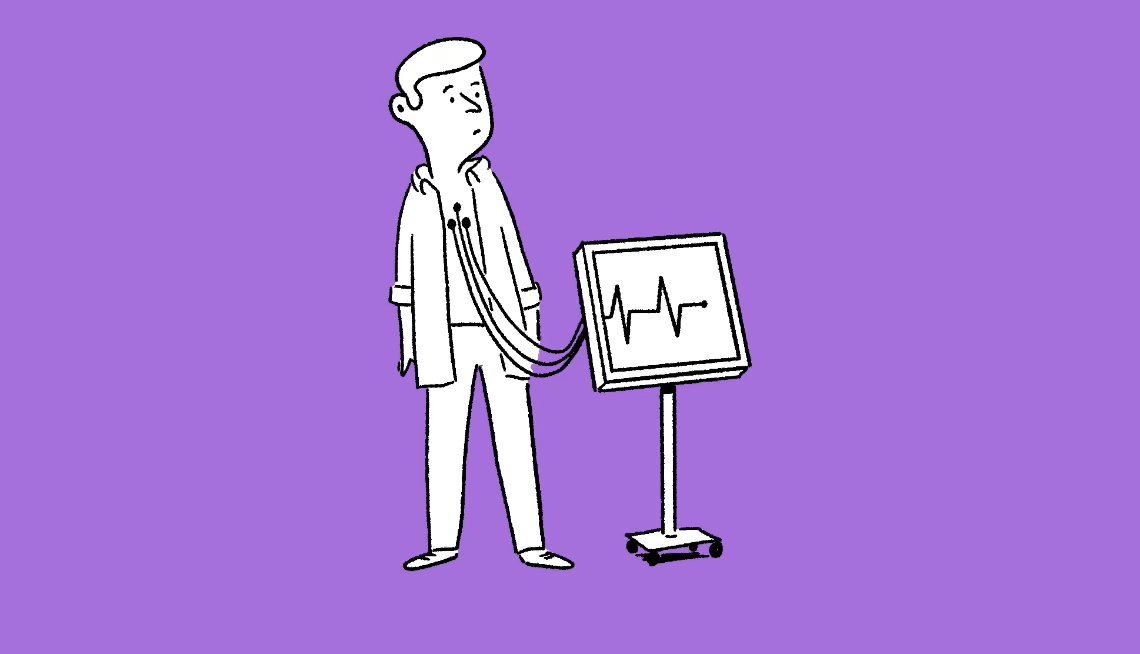AARP Hearing Center


I feel that my heart is sometimes skipping a beat. Is this dangerous?
First, if you’re experiencing increasingly frequent palpitations, fainting, dizziness, unusual sweating, lightheadedness or chest pains, consult your doctor right away.
Initially, your doctor will do a physical examination, ask questions about your medical history, and listen to your heart using a stethoscope. Your doctor may decide to perform an electrocardiogram (EKG), which is a fast and painless test that shows your heart’s rate, rhythm, strength and timing of electrical signals. You’d be surprised how many times I see extra beats, even runs of beats, when I’m performing an EKG in my office, and yet some of my patients don’t feel any of them. Other patients are highly sensitive to changes in their heart’s rhythm.
If the EKG is abnormal you may be referred for an echocardiogram (sonogram) to look at the architecture of the heart. Ultimately, your doctor may refer you to a cardiologist, a specialist in heart issues, or an electrophysiologist, a specialist in abnormal heart rhythms.


Ask Dr. Adam
Adam B. Rosenbluth, M.D., is an internist and cardiologist in New York City. Each Monday, he’ll weigh in on your questions about how to make your body work better for you. His AARP book will be published in 2027.
But if you feel like your heart is fluttering or skipping a beat, it’s most likely a condition called PVC or premature ventricular contraction. PVCs are a type of heartbeat that can occur in folks of all ages but is more common among older people. It may feel like your heart is skipping a beat, but PVCs are actually extra beats originating in your heart’s lower chambers, or ventricles. I see this condition all the time in my practice, and it's usually nothing to worry about.
If you’re experiencing fluttering in your heart, your doctor may fit you with a Holter monitor, which is a portable device that records the heart’s rate and rhythm during normal daily activities. These days, some personal devices like smartwatches can offer similar remote monitoring.






























































You Might Also Like
19 Heart-Smart Choices to Make Throughout Your Day
Treat your heart right morning, noon and night with these easy, research-proven, expert-endorsed ideas
Breakthrough Technology Increases Access To Lifesaving Meds
More heart failure patients are getting the care they needWake Up More Refreshed With Our Smart Guide to Sleep
43 tips to help you fight those restless, endless nights and get the slumber you need